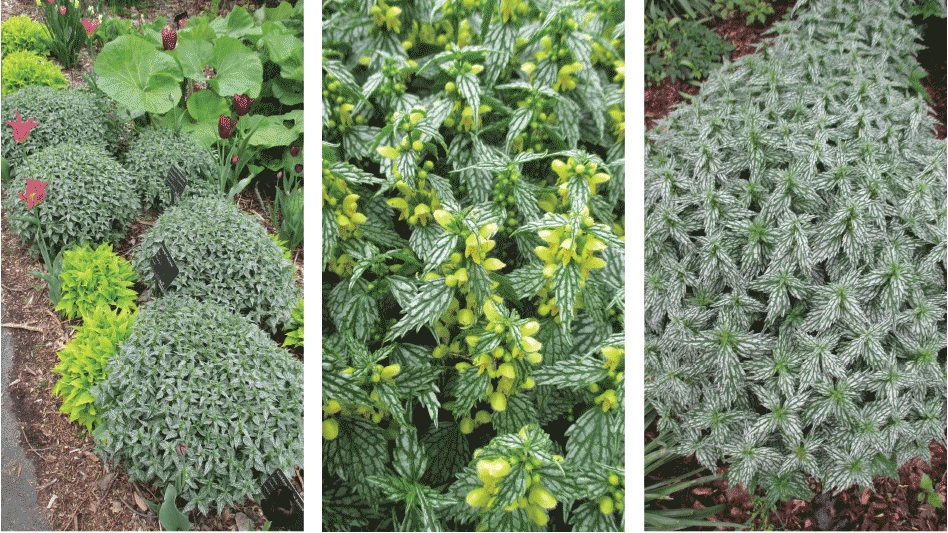
You’ve heard it in the halls of trade shows and across social media channels: We have to start marketing to Millennials. But how? We say we don’t understand them, we have a hard time communicating with them, or we don’t know what they want. Well, it’s time to figure it out. Connect with Millennials now or face potential closure in the future.
Why? Millennials are the largest generation in U.S. history, numbering more than 80 million—three times the population of the previous generation—and they’re spending $600 billion each year. In 15 years, there will be more Millennials on earth than any other age group. Despite rumors to the contrary, they are very brand loyal, but brands must work harder and smarter to earn their respect and trust. You need them to buy your products.
Quality is not #1
Growers and garden center retailers have become very comfortable claiming that their product quality surpasses their competitors and many believe quality is the main motivator of their customers. The reality is that growers with poor products have already gone out of business. The cream of the crop remains.
When asked which factors tend to influence their purchases of branded products, Millennials list value, recommendations from friends, and brand reputation as being more important than quality. An acceptable level of quality is expected, not a bonus, for this generation. There goes your main marketing premise.
Can you relate and adapt?
Millennials do not relate to brands that market at them from behind closed doors. Today’s most successful brands meet and build relationships with consumers where they live: on social media, on mobile responsive sites, at community events, and are transparent about their brand values. 60 percent of Millennials say that social advertising has the most influence over them in how they perceive a brand and evaluate its relevancy.

As a generation, Millennials are greatly concerned about the state of the environment, having grown up surrounded by the issue of climate change and now the plight of our vital pollinator populations. Brands that authentically share consumers’ concerns and create meaningful products that support the local ecology are winning hands-down with this generation. Companies whose practices fly in the face of consumers’ serious concerns are routinely flogged on the open forum of social media, increasingly to great detriment of their brands.
Five traits of successful brands
Brands that are achieving the highest levels of success with Millennials share at least one of these five traits: local, authentic, earthy, easy and fun. Here’s how they are doing it.1. Local. According to consumer market behavior research conducted by Bridget Behe of Michigan State University, most people place a very high value on locally produced products which they perceive to be more environmentally friendly and healthier. In fact, people are willing to pay an average of $.29 more for that locally grown pepper, pumpkin or plant at their local farmer’s market. Conversely, they are willing to pay $1.76 less for imported items. How many garden centers are actively promoting their products as locally grown?
2. Authentic and Relatable. Highly successful brands like Trader Joe’s and Annie’s Annuals & Perennials have done a superb job of developing an authentic brand identity that permeates every part of their business, from the people they hire, to the products they offer in their fun retail stores, and across their print and online marketing strategies. It feels good to shop from these companies that understand and share the values of their Millennial customers.
Brie Arthur, a Gen Y garden industry communicator, describes her experience at Trader Joe’s as “consistent, efficient and cheerful.”
“I rarely feel overwhelmed and I leave with everything I need plus some, but without feeling guilty,” she adds.
Imagine customers leaving their local garden center without that feeling of guilt because they understand and value the fact that their new plants will benefit the pollinators in their gardens while increasing their property value. Are we effectively relating the value of our plants to consumers?
Joseph Tychonievich, a young author and plant breeder from Michigan, connects strongly with the authentic brand built by Annie’s Annuals & Perennials. He describes it as a “uniqueness that people are really craving in a world that can feel homogeneous and overly scripted. Even more importantly, she backs up that quirky, cool, unique aesthetic with really quirky, cool, unique plants.”
3. Earthy and All-Natural. There’s nothing more authentically organic than a fallen log covered with lichens or a gardener sinking their hands into the rich earth. Brands that use this sort of earthy, simple imagery are meeting Millennials’ desire to connect on the most basic level. A simple display of terrarium kits seen recently at a trade show was absolutely captivating for that very reason. The brand drew shoppers in with its earthy display, then presented the simple kit made from recycled packaging which included step-by-step instructions and everything needed to make your own terrarium.
Baker Creek Heirloom Seeds is another brand that checks all the boxes when it comes to branding for Millennials: their product is edible, environmentally responsible, easy to understand and marketed with modern flair. They are the favorite mail order source of Arthur, who has worked to define “suburban foodscaping” as an insightful new way to garden with edibles.
“Baker Creek Heirloom Seeds provides exceptional products to grow an authentic lifestyle experience. That is what the hobby of gardening is all about,” she says.
4. Easy. Products are continually designed to be faster and easier to consume in today’s busy world. We want to feel the satisfaction of completing a project ourselves but need brands to break things down into smaller, more easily consumable pieces that we can handle in an hour or a weekend. Proven Winners does this by offering tested plants that are selected for their garden performance paired with fun how-to videos and project ideas on their new visual-centric website geared toward younger consumers, www.beauty.provenwinners.com. Millennials expect consistency when they purchase all kinds of branded products—including plants—perhaps because of their experiences growing up among chain stores where a certain level of quality and service is always delivered.
Flora Grubb Gardens in San Francisco is a favorite brand of Leslie Halleck, a Gen X horticultural marketer based in Dallas.
“Flora Grubb’s branding aesthetics are perfection, from the design of her logo, to professional photography, to the merchandising in the retail garden center. She has also seamlessly threaded her identity and brand though her staffing, store and custom products. Because her branding aesthetics are so good, she has garnered good organic social media and PR traction as well,” says Halleck.

Customers looking to bring home one of Flora Grubb’s signature succulent creations have three easy options at her retail store: make one yourself at the store, design a combination that the staff will plant for you, or pot up your creations with friends at a planting party. Each option offers a different level of engagement to suit the consumer’s individual preferences.
5. Fun. Plants give us the oxygen we breathe, feed the bees who pollinate the majority of our food crops and beautify our outdoor living spaces. But equally important, plants are fun. Too often, growers and retailers get bogged down in the business of horticulture and forget to talk about how much fun people can have with our plants and the joy they can bring.
Fun products sell. Chris Hansen, the marketer behind the new Chick Charms brand of Sempervivums, understands this implicitly. You rarely see Hansen without a smile on his face, and that positive attitude permeates his brand. From the smiling cartoon chick perched atop every plant tag to the playful plant names like Watermelon Ripple, these collectable hens & chicks exude fun. He has geared the brand towards kids and non-gardeners as a “gateway plant” to get them interested in the hobby. Chick Charms are easy to grow, have interesting color all year and are inexpensive to purchase—all keys to success with Millennials.
A few words of advice
Wondering where to go from here? Start by hosting a “big ideas meeting” within your company, inviting anyone on staff who would like to contribute to a progressive discussion about your brand. Often the answer lies within your own four walls. Or consider hiring a freelance marketing professional within the horticulture industry to help you update select marketing strategies or to hire a larger firm who can perform a broader overhaul.
Halleck’s final piece of advice: “Today’s customer expects relevancy; they want to see themselves reflected in you as a contemporary brand and will judge you quickly on how your brand looks overall.”
Regardless of the marketing strategies you pursue, Arthur wants you to remember that the consumer will remember the shopping experience, which will be shared on social media if it was awesome; the story of the product, which will be shared; and the happiness it brought them. Never underestimate the joy factor. It is ultimately what connects us all in our human experience.
Susan Martin specializes in horticultural marketing, content generation and management, working with green industry clients in trade and consumer sectors; gardenersuesnews@gmail.com.

Explore the March 2016 Issue
Check out more from this issue and find your next story to read.
Latest from Nursery Management
- NewGen Boxwood added to Proven Winners ColorChoice line
- Terra Nova releases new echinacea variety, 'Fringe Festival'
- American Horticultural Society names winners of 2025 AHS Book Awards
- Nufarm announces unified brand
- American Horticultural Society announces winners of 2025 Great American Gardeners Awards
- Shifting the urban environment
- The Growth Industry Episode 3: Across the Pond with Neville Stein
- What's in a name?





